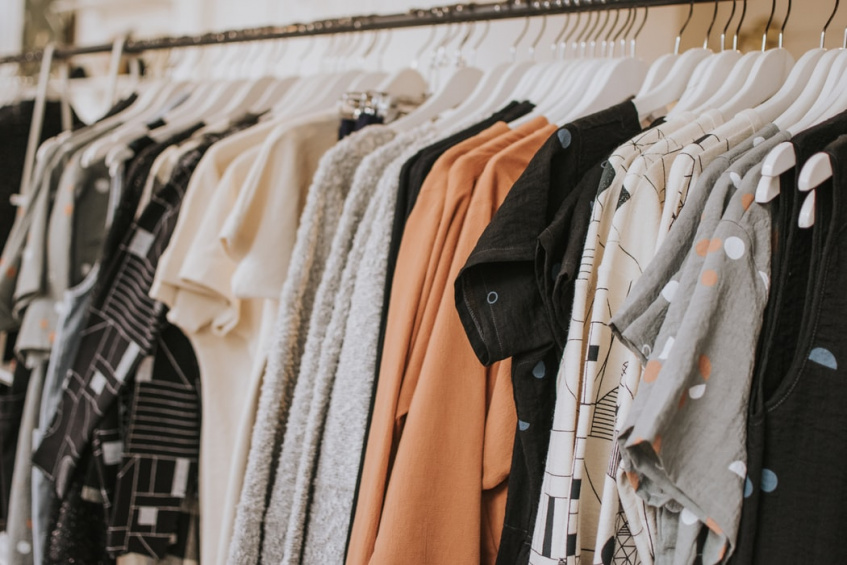
In the course of a six-day seminar organised under the EU4Business Initiative, Armenian textile companies gained deeper insights into price segmentation and the effective use of communication and promotion channels, as well as roadmaps for overcoming the economic challenges of the COVID-19 pandemic.
During Soviet times, Armenia was noted for its textile industry. Indeed, Armenia’s second largest city, Gyumri, was home to a huge textile factory and even had a district called “Tekstil.” These days, fashion is becoming a promising force of its own alongside the textile industry. The Eastern Partnership: Ready to Trade EU4Business initiative is supporting the development and export efforts of local companies. This project is being implemented by the International Trade Centre and funded by the European Union under its EU4Business Initiative.
“Armenia has always stood out for its quality clothes and footwear,” notes Anoush Gasparian, Co-founder and Commercial Director of a famous Russia-based Fashion Consulting Group, and a consultant for the International Trade Centre and the European Bank for Reconstruction and Development (EBRD). “Manufacturers in Armenia have significant competitive capacity on both in the domestic and international markets. To realise this potential, they need a solid business plan and a marketing strategy.” Anoush has over 20 years of experience in fashion marketing.
Under the Eastern Partnership: Ready to Trade EU4Business initiative, Anoush has provided one-to-one and group consultations to over 20 SMEs looking to improve their competitiveness and gain access international markets. The seminar was organised by the International Trade Centre (ITC) and the United Nations Industrial Development Organization (UNIDO).
“52% of local products are exported to the Eurasian Economic Union, 45% to Europe and 3% to other markets,” says UNIDO National Project Coordinator Araksya Grigoryan. “Drawing on its vast experience, UNIDO chose topics that might provide local companies with deep insights into market specifics and tailor their resources to improve exports.” Since 2014, the UNIDO Project “Improving Competitiveness of Export-Oriented Industries in Armenia through Modernization and Market Access” has been helping Armenia promote the production and exports of clothing and footwear.
During the six-day seminar, the international expert deconstructed a number of issues: price segmentation, effective use of communication and promotion channels, exports, and economic challenges during the COVID-19 pandemic. Anoush provided participants with valuable roadmaps to tackle the problems their businesses face and helped identify competitive advantages to capitalise on. The event brought together over 40 participants, among them, heads of companies, sales and marketing specialists and designers from 23 SMEs.
“To succeed, every company should learn to play by the rules of a specific market,” Anoush Gasparian notes. “This means having a clear idea of your own position in the sector, the ability to target potential clients or consumers, and the capacity to implement an effective pricing strategy. It’s also increasingly important to build brand awareness and implement aggressive marketing strategies if necessary.”
For companies looking to export their products, Anoush recommends careful research of the export market and potential competitors.
“Many local companies consider Russia their primary export market,” says Anoush. “They should realise that Russia comes second after the UK in terms of diversity of brands, so it’s important to offer competitive products.”
The flexibility of a marketing strategy is key in every sector, and the fashion industry is no exception. It is one of the industries in the world that has been most affected by the COVID-19 crisis. According to the Fashion Consulting Group, the average market value of fashion companies dropped 40% in January-April 2020. Sberbank reports 90% loss of income by retail centres in Russia.
COVID-19 upset the plans of both international and local companies, causing many orders to be suspended. The 2020 crisis showed that companies that applied both offline and online communication tools were better able to weather the storm using augmented and virtual reality (AR, VR), automated tools for customer service, gamification, and influencer marketing. A survey by Collective Bias revealed that 30% of customers focus on products advertised by bloggers rather than industry leaders.
“As recommended by Anoush, we are switching to online platforms and large-scale trade shows,” says Anna Muradyan, an administrator at Texas LLC. “With the support of the UNIDO project, we are getting ready for an online expo.”
The Armenian State Revenue Committee reported exports of more than US $214 million in clothes and footwear in 2018 and more than US $167 million in 2019.
Since 2017, the Eastern Partnership: Ready to Trade EU4Business initiative has been providing customised solutions to local SMEs by helping them produce value-added goods in line with international market standards and linking them with buyers from global value chains and markets, in particular within the EU.
